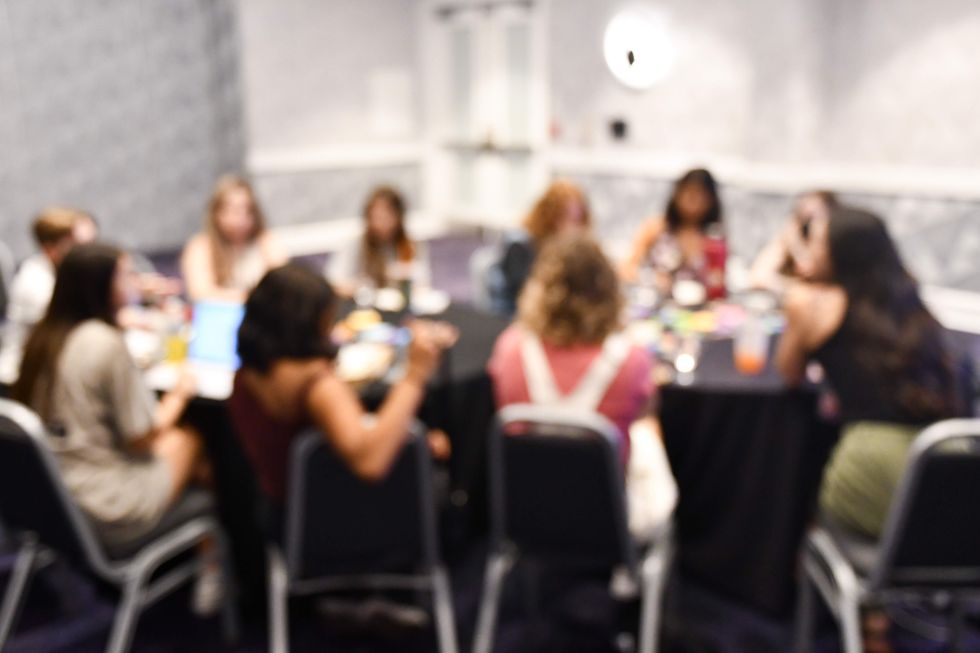An F in Student Activism?
This story is brought to you by our partners at Advocates for Youth.When I arrived on my college campus for new student orientation, I was excited to meet other equally ambitious young people with a plethora of different experiences. In my first class, Writing Seminar: Organizing for Social Justice, I thought I knew it all. I did student organizing in high school, this is going to be simple.But did my experience mean anything at a school where everyones equally if not more successful?My classmates boasted about their success on campus organizing walk outs, propelling government action, and providing aid for people in Palestine. Alongside that, our class reading primarily talks about activist wins and barely acknowledges setbacks. The first week of class was a highlight reel of wins. While I was impressed, I also felt like a loser. Ive known Ive wanted to be an activist since I stepped into high school. I could count the number of Chinese people that were in my grade on one hand, and I couldnt count how many Pacific Islanders there were; namely because there were none. I had almost no openly queer classmates because it was looked down upon. In a homogenous community where nobody looked like me, I needed to make my voice heard. I knew my peers and I were equally uneducated about the issues impacting my community. Our health classes didnt address important topics including barriers to reproductive health care, HIV stigma, or birth control misinformation the topics that shape our lives as young people of color and LGBTQ+ youth. I wanted queer students to feel represented in class, so I decided to advocate for changes to our health curriculum. I emailed school administrators, set up meetings, and shared my story. I wanted to bring in a wide range of guest speakers and incorporate new educational tools to make classes more relatable, engaging and intersectional. Over and over again, my demands went ignored and minimized. A year of advocacy resulted in failure. I know Im not the only activist whos failed, or whos feeling demoralized right now. This summer, all I could do was scroll through scary headlines on my screen, feeling powerless in the face of attacks on trans youth, book bans, abortion restrictions, and cuts to funding for people living with HIV. The movement for racial and reproductive justice is experiencing failures and setbacks at a terrifying rate. Its hard to talk about, but keeping silent could set us back even further.Minimizing our failures and turning activism into a highlight reel wont help anyone, but sharing the lessons each attempt teaches us, regardless of outcome, builds a stronger movement equipped for long-term success. While my high school curriculum didnt change, I learned how to speak with decision-makers and how to ask for help. I learned the importance of building coalitions across student groups and across class years, so organizing continues even after graduation, and what tools already exist to help make health class inclusive and engaging (Amaze.org is my personal favorite, with their amazing and age appropriate animated sex ed videos). Sharing my failures allows me to talk about the lessons learned along the way.Last week, I attended the Youth Activist Institute, a conference and training series for organizers aged 14 to 24 organized by the national nonprofit Advocates for Youth. In previous years, I allowed insecurities and imposter syndrome to push me to hide my failures. I was timid and never mingled, scared I might misspeak from my lack of knowledge. This time, I asked other activists both what they hoped to accomplish this year, and what projects hadnt panned out in the past. I came back to campus with a new outlook: maybe I know more than I think.My journey, and every journey, will not be wholly filled with wins or losses. Theres social pressure toward toxic positivity, pressure to combat a slew of bad news with a few prized success stories. But that can lead organizers to burn out, or to see a drought of wins as a reason to give up. I know that being blunt and up front about failure isnt easy, but just because I failed once doesnt mean there isnt a win in my future, or that I shouldnt keep trying. This school year, our failures can be a collective tool to help us learn and grow. If youre experiencing failure, or if youre scared to start because of it, remember that movements dont build themselves in a day. If youre not failing, youre not trying. Generations before us have tried, failed, reassessed, and recentered. Lets follow their lead while rooting our activism in honesty and hopefulness this school year. Cailey Chin (they/she) is a freshman at the University of Pennsylvania and a youth activist with Advocates for Youth, a national youth activism nonprofit training young people ages 14-24 to organize for reproductive and sexual health. Outside of university, shes also a content creator passionate about helping underserved students with academia




